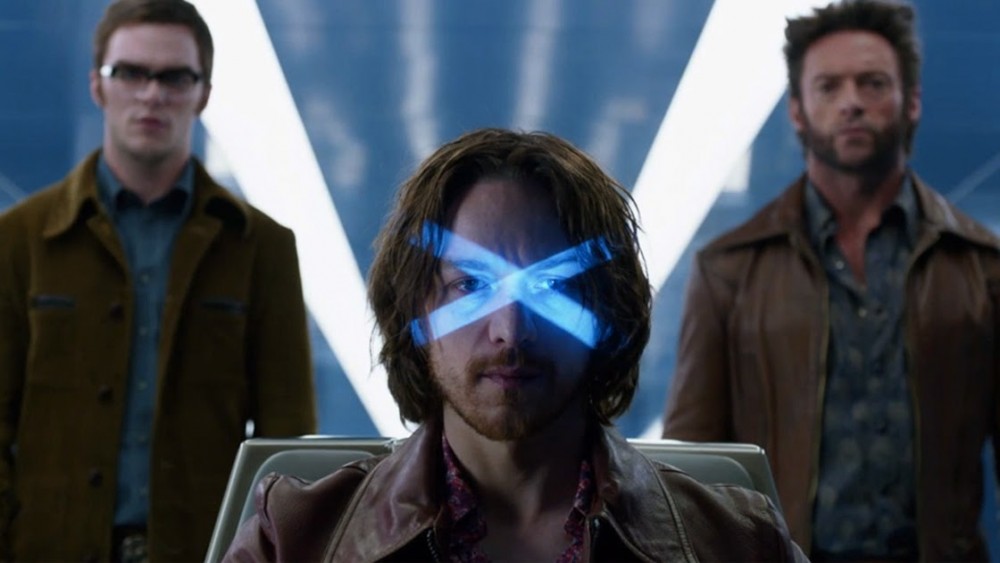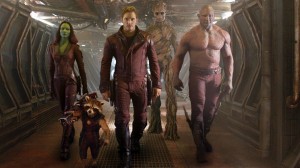
Scandals aside, it’s hard to trust a man like Bryan Singer after watching the last couple of flops he’s made (more Jack the Giant Slayer and Superman Returns than Valkyrie). Considering the depths of hell that the X-Men universe fell into with Brett Ratner’s dismal The Last Stand, the decision to delve back into that universe — when X-Men: First Class created the promise of a whole new world — by mixing future and past together, was one that unsettled me. But X-Men: Days of Future Past has paid off for Singer, and it’s a film that certainly takes mass effect on the series.
Days of Future Past combines two time periods in the mutant universe. The audience is first introduced to the remaining survivors of a world where most mutants, and humans who may birth mutants, are dead; among the survivors are Kitty, Logan, Charles, and Erik. Long gone are the Sentinels of the comic book days; these hip, new, constantly-morphing, power-shifting beings look a lot more like Thor‘s destroyer than real Sentinels. Their power to adapt to the situation by essentially utilizing one mutant’s power against another in combat could be related to Rogue; and the implication that her death (among many others) could have been used to create these near-unstoppable killers is a sad one. But there’s not too much to care about in the future, even if Singer wants us to feel bad every time he throws us a close-up of Professor X looking worried. No, the reason we’re here is in the past, where Kitty has just sent Logan’s consciousness for the sake of saving the world.
Once the story gets going in the 1970s, we’re smacked with a ton of comic scenes; so much so that the dramatic tension gets left in the dust. For a film that kicked off with the most dramatic action set piece ever, it’s weird to see it all shift gears to this. But, on the bright side, the comedy is mostly pretty fun. The few scenes that Quicksilver are in offer Evan Peters a slim chance to shine and he takes it. When the film slows things down to show us how a couple of seconds play out through his perspective, it’s straight-up delightful. The slow-mo visual effects set to Jim Croce’s “Time in a Bottle” is easily something that everyone’ll walk away from the film remembering.
Scenes like this are entertaining to watch, even more so in the seventies where great costumes, solid production design, and the presence of Peter Dinklage as Dr. Trask lift it far about any future scene we’re shown. However, the embracing of comedy over anything else reminds us that there’s no reason to invest in any of these characters. In the future, all the action happens so quickly (and awkwardly interspersed in the film’s last act) that it’s impossible to care about the surviving mutants. As for the past, any dramatic momentum introduced goes by quicker than our speedy mutant pal ever could, and the way characters deal with their issues can get irksome. Great performances from all three aside, one can only watch Raven, Erik, and Charles’ love triangle play out to negative effect so many times before growing tired. And much like with other blockbuster features of recent days, no death is permanent. With time travel, that statement rings even truer; unless, however, you were dead before the past was fixed. That, unfortunately, is where my biggest problem with Days of Future Past lies; not in what was shown, but what wasn’t.
Many, including myself, complained that X-Men: First Class’ screenwriters (Ashley Miller, Zack Stentz, Jane Goldman, Matthew Vaughn) didn’t exactly do a great job writing its women. Outside of Mystique, they were all pretty bland; Emma Frost above all else wasn’t given an ounce of the power or agency she has in the comics. Now down to Simon Kinberg (who you may remember wrote The Last Stand, of all X-Men movies), women aren’t just given the short end of the script, they’re all but deleted from the past. With barely a moment to grieve their loss, every female character (and every mutant that isn’t Mystique, Charles, Erik, Hank, Logan, and a couple of others introduced in this film) has ceased to exist; fallen subject to Trask’s science experiments and/or killed trying to defend against his forces. Even if time is changed from the seventies on, these people won’t come back. One could make the excuse that Kitty Pryde’s role in the future is a positive feature, but that defense is knocked down easily considering she was reduced to a tool for time travel instead of being given the role of time traveler as she was in Chris Claremont’s original story (of which very little remains). Intentional or not, the solution to poor female writing isn’t deleting those characters out of your script for the sake of convenience, or even time management, and that’s something that seriously hinders my own personal enjoyment of Days of Future Past.
As fun as some of X-Men: Days of Future Past was, its flaws stand out like an all-blue mutant in a crowd of humans. For an entire film based around the persecution of mutants, where the Sentinels should have been a constantly looming presence, there’s little to fear (and no real social or political commentary to be found in a film that should be drowning in it). As engaging as many of the segments can be, practically all of which are located in the past, there’s no urgency to the situations happening. Because of that, Bryan Singer’s film simply ends up being just enough. Not as good as its dedicated period prequel, not as bad as the film whose existence it wiped from X-Men cinematic canon (you’ll see when you watch it), but enough to get the seats full and the series more or less rebooted for the impending Apocalypse.
—
X-Men Days of Future Past is available for pre-order on Blu-ray and DVD
.
Directed by Bryan Singer; screenplay by Simon Kinberg; based on Days of Future Past by Chris Claremont and John Byrne; starring Hugh Jackman, James McAvoy, Michael Fassbender, Jennifer Lawrence, Nicholas Hoult, Peter Dinklage, Evan Peters, Ellen Page, Ian McKellen, Patrick Stewart, Halle Berry, Shawn Ashmore, Omar Sy, and Fan Bingbing; 131 minutes.



 Derek
Derek
 Isabelle
Isabelle